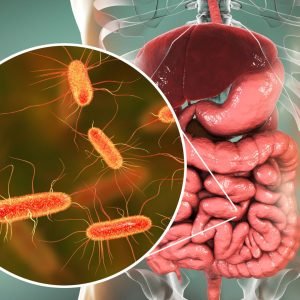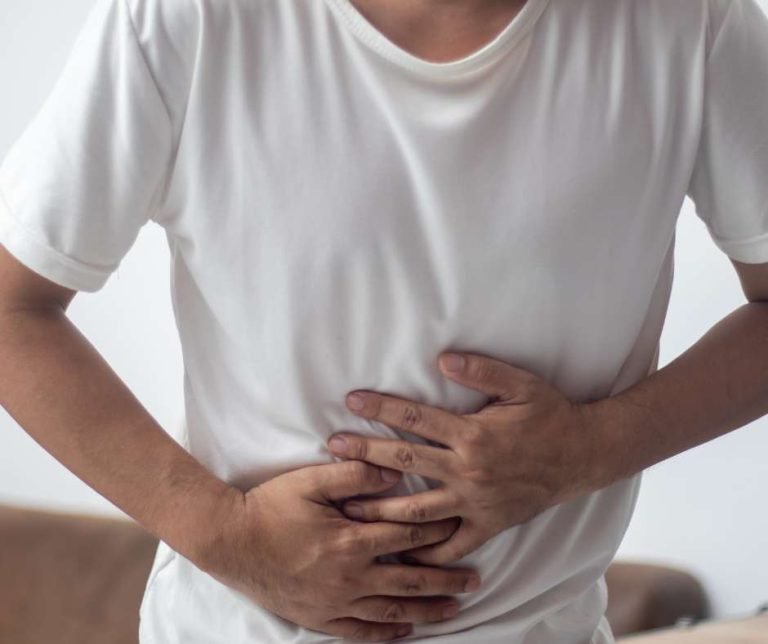
What Your Stool Color & Shape Reveal About Your Gut Health
Your poop is a real-time report card on your gut health—and most people are ignoring it. From color changes to weird shapes to the clues

Home » Understanding Dysbiosis: Signs, Symptoms, and Solutions
Gut health has become a trending topic in the wellness world, but it’s far more than a passing fad. Your gut is home to trillions of bacteria—some good, some bad—that work together to keep your body functioning properly. When the balance between these bacteria shifts in favor of the “bad guys,” that’s when dysbiosis strikes. What happens in your gut doesn’t stay in your gut, and dysbiosis can wreak havoc across your entire body. If you’ve been feeling off but can’t quite put your finger on why, your gut might be trying to tell you something.
Welcome to the world of dysbiosis, where your body’s internal ecosystem can either support you or send you spiraling into a slew of frustrating symptoms. But don’t worry—you’re about to become a gut health expert! In this post, we’ll break down everything you need to know about dysbiosis: what it is, how to spot the signs, and, most importantly, how to fix it. By the end, you’ll not only understand what’s going on inside your body but also be armed with solutions that can help you take control of your gut health. Let’s dive in!

Imagine your gut as a bustling metropolis. The good bacteria are the well-behaved citizens: they help digest your food, produce vitamins, fend off harmful invaders, and even influence your mood. The bad bacteria? They’re the troublemakers—littering the streets, causing chaos, and wreaking havoc on your health. Dysbiosis happens when those troublemakers take over and the once-peaceful city of your gut becomes a battleground.
Before we get too deep into the nitty-gritty of dysbiosis, let’s start with the star of the show: your gut microbiome. This is the community of trillions of microorganisms—bacteria, fungi, viruses, and more—living inside your digestive tract. Sounds gross, right? Not at all. Most of these microorganisms are helpful. They’re like tiny superheroes, playing key roles in digestion, immune function, and even mental health. They create essential nutrients like vitamin K and B vitamins, break down fiber, and help protect against harmful pathogens.
When your gut microbiome is in balance, life is good. You feel energetic, your digestion hums along smoothly, and your immune system is primed to fight off illness. But when things go out of whack, dysbiosis steps in, and that’s where the trouble begins.
Dysbiosis doesn’t just show up unannounced—it has a number of triggers. Understanding what causes the imbalance is crucial to restoring harmony in your gut. Here are some of the biggest culprits:
Poor Diet: A diet high in sugar, processed foods, and unhealthy fats can encourage the growth of harmful bacteria. Think of it like throwing a wild party and inviting all the wrong people. Your gut craves fiber-rich fruits, vegetables, and whole grains, not sugary snacks and fried foods.
Overuse of Antibiotics: Antibiotics are lifesavers, but they can also wipe out the good bacteria along with the bad. If you’ve taken several rounds of antibiotics, your gut might need some time to recover its balance.
Chronic Stress: Ever notice how your stomach churns when you’re anxious? That’s no coincidence. Stress alters your gut’s environment and makes it easier for harmful bacteria to thrive. Prolonged stress can lead to chronic dysbiosis.
Lack of Sleep: Your body’s natural rhythms are deeply tied to your gut. Skimping on sleep disrupts these rhythms and can weaken your gut’s defense mechanisms.
Environmental Factors: Pollution, chemical exposure, and even the water you drink can have an impact on your gut. Toxins in the environment can alter the delicate microbial balance.
Dysbiosis isn’t just a byproduct of one bad habit. It’s often the result of multiple lifestyle factors piling up over time.

So how do you know if your gut is out of balance? Dysbiosis doesn’t always send up a red flag, but it does often sneakily whisper through a variety of symptoms. If you’ve been battling mysterious health issues, it’s worth considering whether your gut could be at the root of it all.
Most of the obvious symptoms of dysbiosis appear in your gut, and they’re not pretty. Here’s what to watch out for:
Bloating: Does your stomach feel like it’s a balloon after eating? That uncomfortable bloating could be a sign that your gut bacteria are struggling to digest your food properly.
Gas: Gas happens to the best of us, but excessive gas—especially if it’s smelly—might be a sign that your gut bacteria are out of balance.
Diarrhea or Constipation: If you’re on a rollercoaster ride between diarrhea and constipation, it could be due to dysbiosis. Your gut bacteria play a major role in keeping your bowel movements regular.
Food Intolerances: Suddenly reacting to foods that never bothered you before? Dysbiosis can make it harder for your gut to properly digest certain foods, leading to intolerances.
Here’s the surprising part: dysbiosis doesn’t just affect your gut. Because your gut is connected to so many systems in your body, an imbalance can manifest in unexpected ways:
Skin Problems: Acne, eczema, and rosacea can all be linked to an unhealthy gut. Your skin is often a mirror of your internal health, and when your gut is inflamed, it can show up on your skin.
Mood Swings and Anxiety: The gut-brain axis is a direct line of communication between your digestive system and your brain. When your gut bacteria are out of balance, it can affect your mental health. Anxiety, depression, and mood swings are often tied to dysbiosis.
Fatigue: Constantly feeling tired, no matter how much sleep you get? Dysbiosis can mess with your energy levels, leaving you sluggish and drained.
Poor Concentration: Ever experience “brain fog”? This cloudy thinking can be a sign that your gut bacteria aren’t producing the nutrients your brain needs to function properly.
While dysbiosis might start with these more manageable symptoms, over time, it can lead to more serious health issues. Research has linked chronic dysbiosis to:
Autoimmune Diseases: An imbalanced gut can trigger immune system malfunctions, increasing the risk of autoimmune conditions like rheumatoid arthritis or lupus.
Obesity: Dysbiosis can mess with the way your body processes food, leading to weight gain and metabolic issues.
Chronic Inflammation: An unhealthy gut can contribute to systemic inflammation, which is linked to heart disease, diabetes, and even cancer.
The good news? You can stop dysbiosis in its tracks by addressing the root causes and rebalancing your gut.
If you suspect that dysbiosis might be behind your health woes, the next step is to get a proper diagnosis. Unfortunately, dysbiosis doesn’t always show up on routine medical tests, so you may need to dig a little deeper.
There are several tests that can help you (and your doctor) get a clearer picture of what’s going on inside your gut:
Stool Analysis: This is the gold standard for diagnosing dysbiosis. A stool test can reveal the types and quantities of bacteria in your gut, as well as other markers of gut health like inflammation or infection.
Breath Tests: Certain bacteria in your gut produce gases like hydrogen and methane, which can be detected through a breath test. This can be useful in diagnosing conditions like small intestinal bacterial overgrowth (SIBO), a form of dysbiosis.
Blood Tests: While not specifically for dysbiosis, blood tests can help rule out other conditions and check for markers of inflammation that may indicate an imbalanced gut.
While dysbiosis can often be managed through lifestyle changes, there are times when it’s essential to seek professional help. If you’re experiencing severe digestive issues, unexplained weight loss, or persistent fatigue, it’s time to talk to your doctor. They can guide you through the process of getting the right tests and creating a plan to restore your gut health.
Once dysbiosis is on your radar, the next question is: how do you fix it? The good news is that your gut is resilient. With the right lifestyle changes, you can restore balance to your microbiome and start feeling better. Here’s how:
Food is medicine, especially when it comes to your gut. To heal dysbiosis, your first step should be to overhaul your diet.
Increase Fiber Intake: Your gut bacteria love fiber! Fruits, vegetables, whole grains, and legumes provide the fuel they need to thrive. Make sure you’re getting at least 25-30 grams of fiber per day to help restore balance.
Cut Back on Sugar and Processed Foods: Sugar and processed junk food feed the harmful bacteria in your gut, allowing them to multiply. Reducing your intake of sugary snacks, sodas, and processed foods can help starve out the bad bacteria.
Add Fermented Foods: Fermented foods like yogurt, kefir, sauerkraut, and kimchi are rich in probiotics, which can help repopulate your gut with good bacteria. Try to incorporate these foods into your daily meals.
Eat Prebiotic-Rich Foods: Prebiotics are fibers that feed the good bacteria in your gut. Foods like garlic, onions, leeks, asparagus, and bananas are excellent sources of prebiotics.
Consider an Elimination Diet: If you suspect food intolerances, an elimination diet can help you identify the culprits. Start by cutting out common triggers like gluten, dairy, and soy, then gradually reintroduce them one at a time to see how your body reacts.
Diet alone isn’t enough to heal dysbiosis. Your lifestyle habits play a major role in maintaining a healthy gut:
Manage Stress: Chronic stress is a huge contributor to dysbiosis, so it’s important to find ways to relax. Meditation, deep breathing, yoga, and even simple walks in nature can do wonders for your gut health.
Prioritize Sleep: Aim for 7-9 hours of quality sleep per night. Establish a bedtime routine that helps you wind down, and avoid screens for at least an hour before bed. Sleep is when your body repairs itself, including your gut.
Get Moving: Regular exercise is a natural way to support your gut health. It helps promote healthy digestion, reduce inflammation, and regulate your metabolism. Aim for at least 30 minutes of moderate activity most days of the week.
Supplementing with probiotics and prebiotics can give your gut the extra support it needs to rebalance:
Probiotics: These are live bacteria that can help restore the balance of good bacteria in your gut. Look for a high-quality probiotic supplement with a variety of strains, particularly Lactobacillus and Bifidobacterium. Keep in mind that not all probiotics work for everyone, so you may need to try different types to see what works best for you.
Prebiotics: Think of prebiotics as food for your probiotics. Prebiotic supplements, often derived from inulin or chicory root, can help nourish the good bacteria in your gut. You can take them alongside your probiotics for maximum benefit.
In some cases, medical treatments may be necessary to treat dysbiosis, especially if it’s linked to other health conditions like SIBO, IBS, or Crohn’s disease. Here are some options your doctor might recommend:
Antibiotics: While antibiotics can contribute to dysbiosis, they may also be used to treat certain bacterial overgrowths. Your doctor may prescribe a targeted antibiotic, followed by probiotics to restore balance.
Fecal Transplant: For severe cases of dysbiosis, such as recurrent C. difficile infections, fecal transplants have been shown to be highly effective. This procedure involves transplanting healthy donor stool into the patient’s colon to restore a healthy microbial balance.
Prescription Probiotics: In some cases, your doctor may prescribe a medical-grade probiotic that’s stronger or more specific than the over-the-counter varieties.

Once you’ve worked hard to heal your gut, you’ll want to make sure it stays healthy. Here are some simple strategies to maintain balance:
Eat a Gut-Friendly Diet: Keep loading up on fiber-rich foods, fermented goodies, and prebiotics to nourish your microbiome.
Stay Hydrated: Drinking plenty of water helps support digestion and keeps things moving in your gut.
Avoid Unnecessary Antibiotics: While antibiotics are sometimes necessary, try to avoid taking them for minor infections or illnesses. If you do need them, ask your doctor about taking probiotics alongside your treatment.
Manage Stress: Stress management is an ongoing process. Incorporate relaxation techniques into your daily routine to keep your gut happy.
Use Tools to Monitor Your Gut Health: Routine assessments of your gut health can help you catch imbalances before they become major problems. That’s where The Poop Stick comes in. By regularly tracking your bowel movements and digestive health, you’ll be able to spot signs of dysbiosis early and take action before it spirals out of control.
Dysbiosis might sound intimidating, but it’s a problem you can solve with the right knowledge and tools. From identifying the signs and symptoms to implementing dietary and lifestyle changes, you have the power to take control of your gut health. Remember, your gut is not just about digestion—it’s the foundation of your overall well-being.
Now that you’ve got a deep understanding of dysbiosis, it’s time to take action. Start with simple changes: tweak your diet, manage your stress, and if you need a little extra help, grab The Poop Stick to start monitoring your gut health. Small steps can lead to big improvements, and your gut (and your entire body) will thank you.
So what are you waiting for? Your gut is calling!

Your poop is a real-time report card on your gut health—and most people are ignoring it. From color changes to weird shapes to the clues

Wheat isn’t the villain—it’s the kind of wheat that’s wrecking your gut. From ancient grains to modern hybrids, discover how today’s wheat triggers inflammation, worsens

Your gut isn’t just digesting food—it’s controlling your hunger, energy, and even how fast you burn fat. Inside you is a powerful hormone called GLP-1,

Still straining on the toilet? Your posture—not your diet—might be the real problem. Discover how fixing the way you sit can transform your poop from

Happy Poops.
What about your friends?